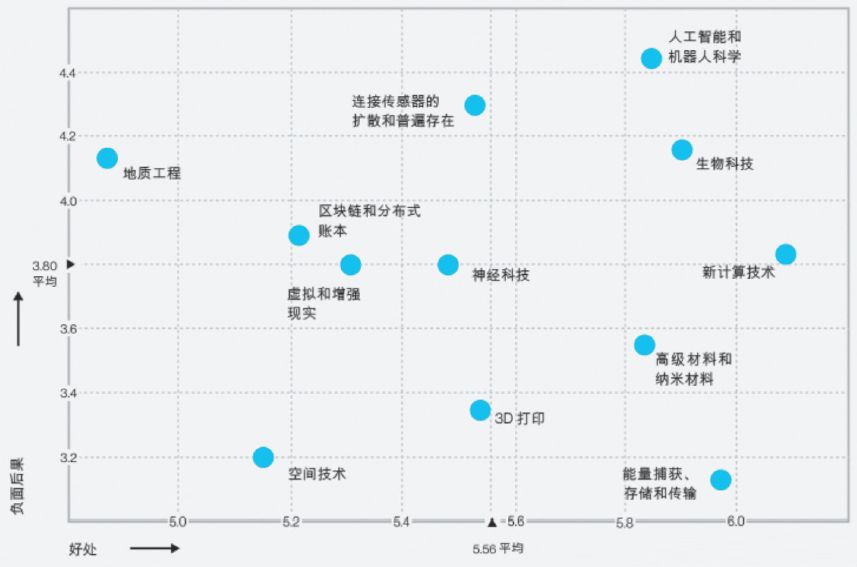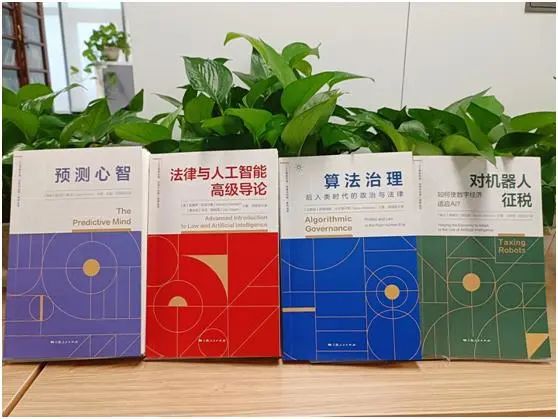China Academy Of Information And Communications Technology Releases "Research Report On Ethical Governance Of Artificial Intelligence (2023)"
China Academy Of Information And Communications Technology Releases "Research Report On Ethical Governance Of Artificial Intelligence (2023)"
With the rapid development and widespread application of artificial intelligence, mankind is entering an era of intelligent interconnection of all things where "humans, machines and things" are integrated. While the application of artificial intelligence technology brings opportunities, it also triggers a series of ethical challenges. To deal with the risks brought by the application of artificial intelligence technology
With the rapid development and widespread application of artificial intelligence, mankind is entering an era of intelligent interconnection of all things where "humans, machines and things" are integrated. While the application of artificial intelligence technology brings opportunities, it also triggers a series of ethical challenges. In order to deal with the risks brought by the application of artificial intelligence technology, countries around the world are actively promoting ethical governance and cooperation in artificial intelligence. Our country continues to improve the artificial intelligence ethical governance system and mechanism, accelerates the implementation of technology, engineering, and standardization of artificial intelligence ethical governance, and promotes the good development of artificial intelligence.
On December 26, 2023, the China Academy of Information and Communications Technology ("CAICT") released the "Artificial Intelligence Ethical Governance Research Report (2023)" at the "2024 China Academy of Information and Communications Technology ICT In-depth Observation Report" Science and Technology Ethics Governance Sub-Forum.

On the basis of summarizing the relevant concepts and characteristics of artificial intelligence ethical governance, the report analyzes the ethical risks of three typical application scenarios of artificial intelligence-generated content, autonomous driving, and smart medical care. Combined with the practice of artificial intelligence ethical governance at home and abroad, the report proposes four prospects for artificial intelligence ethical governance, with a view to providing reference for more extensive and in-depth discussions.
Core ideas of the report
1. Artificial intelligence ethical risk challenges require urgent attention
At present, the ethical challenges caused by artificial intelligence have changed from theoretical discussions to real risks. In the technology research and development stage, due to the insufficient technical capabilities and management methods of artificial intelligence technology development entities in data acquisition and use, algorithm design, model tuning, etc., ethical risks such as bias and discrimination, privacy leaks, misinformation, and inexplicability may arise. In the product development and application stages, the specific fields that artificial intelligence products target, the scope of deployment and application of artificial intelligence systems, etc. will affect the degree of ethical risks of artificial intelligence, and may lead to ethical risks such as misuse, abuse, over-reliance, and impact on education and employment. For typical application scenarios such as artificial intelligence-generated content, autonomous driving, and smart medical care, it is necessary to evaluate the main risks based on the frequency of risk occurrence, scope of impact, and degree of impact.
2. Artificial intelligence ethical governance is an effective mechanism to deal with artificial intelligence risks
Artificial intelligence ethical governance is an important part of artificial intelligence governance and the main mechanism to deal with artificial intelligence risk challenges. Artificial intelligence ethical governance takes people-centeredness, fairness and non-discrimination, transparency and explainability, human controllability, traceability of responsibilities, and sustainable development as its core content. Based on the development and application of artificial intelligence technology, it promptly proposes methods to adjust the relationship between humans and artificial intelligence and respond to artificial intelligence risks.
3. Countries actively promote ethical governance of artificial intelligence
In order to deal with the risks brought by the application of artificial intelligence technology, countries around the world are actively promoting cooperation in international governance of artificial intelligence ethics. Governments of various countries have strengthened the supervision of artificial intelligence ethical governance in their own countries and regions by promulgating artificial intelligence ethical principles, issuing artificial intelligence ethical governance guidelines, and providing technical governance tools. my country has promoted the development of artificial intelligence for good by actively improving the ethical system and norms of artificial intelligence, exploring technical, engineering, and standardized implementation measures for artificial intelligence ethical governance, guiding industry self-discipline, and strengthening international cooperation in artificial intelligence governance.
4. Four perspectives on ethical governance of artificial intelligence
In terms of governance concepts, we adhere to the unity of promoting innovation and preventing risks, and coordinate development and security. In terms of governance measures, we will improve multi-disciplinary and multi-subject cooperation, explore classified and hierarchical governance, and promote the development of governance technology tools. In terms of capacity building, attention should be paid to the improvement of scientific and technological ethics literacy of scientific researchers, developers, the public and other subjects. In terms of open cooperation, we actively participate in global cooperation on ethical governance of artificial intelligence and promote artificial intelligence technology to benefit mankind.
Report directory
1. Overview of Artificial Intelligence Ethical Governance
(1) Concepts and characteristics of artificial intelligence ethics
(2) The necessity of ethical governance of artificial intelligence
2. Concerns about ethical governance of artificial intelligence
(1) Ethical challenges of artificial intelligence
(2) Ethical risks of artificial intelligence in typical application scenarios
3. Artificial Intelligence Ethical Governance Practice
(1) Artificial Intelligence Ethical Governance Plan for International Organizations
(2) Artificial Intelligence Ethical Governance Mechanisms in Foreign Countries and Regions
(3) my country’s artificial intelligence ethical governance practice
4. Prospects for ethical governance of artificial intelligence
(1) Coordinating the innovative development and ethical governance of the artificial intelligence industry
(2) Improving artificial intelligence ethical governance measures
(3) Improve the ability of each subject to respond to ethical risks in artificial intelligence
(4) Strengthen international exchanges and cooperation on ethical governance of artificial intelligence
Brief introduction of main experts
Engineer, Science and Technology Ethics Research Center, China Academy of Information and Communications Technology
Duan Chenxi
Mainly engaged in legal policy research in the fields of science and technology ethics governance, competition policy in the digital economy, and intellectual property rights. He is responsible for and participates in a number of provincial and ministerial level research projects.
Senior Economist, Science and Technology Ethics Research Center, China Academy of Information and Communications Technology
Fu Na
He has long been engaged in research on science and technology ethics, open source, and intellectual property protection in emerging fields. Hosted or participated in more than ten research projects by the Ministry of Industry and Information Technology, National Development and Reform Commission, State Intellectual Property Office, Supreme People's Court, etc. He has provided intellectual property consulting services to many companies. He has published more than ten articles in "People's Posts and Telecommunications" and "Information and Communication Technology and Policy".


![[Speaking By South China University Of Science And Technology] Humans Give Artificial Intelligence Ethics, And Breakthroughs In The Direction Of Biological Evolution Are The Key](https://lcs-sfo.k4v.com/sites/38/article/2025/02/13/63/images/7dd34943ddad152fb2596da1e7a2f9c5.jpeg)


